Search Results for:
Skip to resultsCan’t find what you’re looking for? Visit our FAQ page.
113,004+ results for:
-
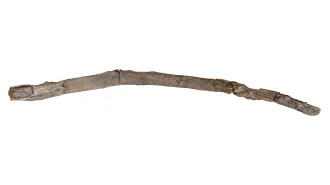 Archaeology
ArchaeologyThis ancient stick may be the world’s oldest handheld wooden tool
These 430,000-year-old wooden tools from Greece are a rare find and provide a glimpse at the technical know-how of our early human ancestors.
By Tom Metcalfe -
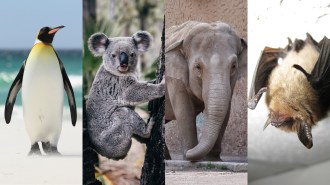 Animals
AnimalsSome vaccines are making progress in protecting vulnerable species
Vaccines can be a crucial conservation tool. But getting shots to wildlife, and developing them in the first place, is tough.
-

The inner lives of animals
Editor in Chief Nancy Shute discusses how scientists are beginning to study animals’ emotions and personalities — from joy to individual temperament.
By Nancy Shute -
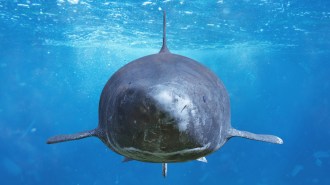 Animals
AnimalsHow Greenland sharks defy aging
When it comes to bucking the biological ails of aging, humans could learn something from Greenland sharks.
By Meghan Rosen -
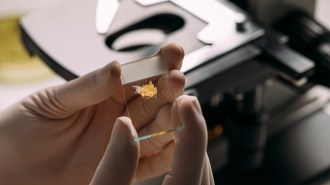 Health & Medicine
Health & MedicineIt masquerades as malignant. But this bone-covered tumor is benign
Scientists have described a novel, yet benign bone-covered growth's characteristics for doctors, so patients don't receive unnecessary chemotherapy.
By Carly Kay -
 Physics
PhysicsPhysics theories about the multiverse are stranger than fiction
Cosmology and quantum physics both offer tantalizing possibilities that we inhabit just one reality among many. But testing that idea is challenging.
-
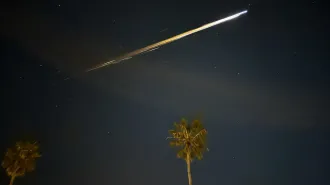 Space
SpaceSeismometers can track falling space junk
As the threat of falling spacecraft increases, using earthquake sensors to detect the effects of their sonic booms could better map trajectories.
-
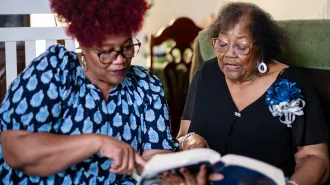 Neuroscience
NeuroscienceA spot in the base of the brain has a love of language
Brain scans show a spot in the cerebellum attuned specifically to words, expanding on studies that point to the region's importance for language.
-
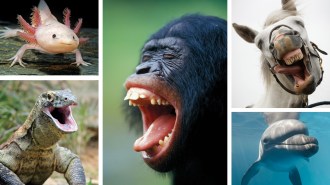 Animals
AnimalsAnimals experience joy. Scientists want to measure it
Scientists have long focused on quantifying fear and other negative emotions in animals. Now they’re trying to measure positive feelings — and it’s a challenge.
By Amber Dance -
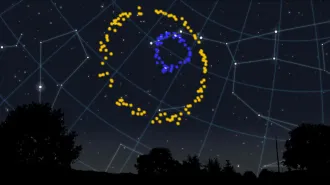 Cosmology
CosmologyA massive cosmic ring may challenge a key assumption about the universe
At 3.3 billion light-years across, the ring may challenge the “cosmological principle” that the universe looks uniform at sufficiently large scales.
- Anthropology
This hand stencil in Indonesia is now the oldest known rock art
The work suggests early Homo sapiens developed enduring artistic practices as they moved through the islands of Southeast Asia.
By Tom Metcalfe -
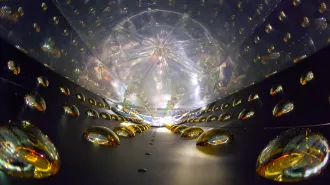 Particle Physics
Particle PhysicsPhysicists discovered neutrinos 70 years ago. The ghostly particles still have secrets to tell
Neutrinos have kept scientists on their toes in the decades since they were discovered.